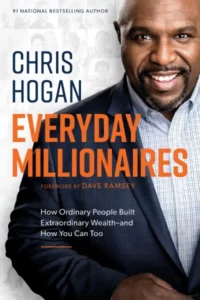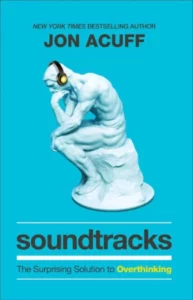For years, the go-to handbook on millionaires was Thomas Stanley’s The Millionaire Next Door. The conclusion, surprising to many, was that millionaires are regular people. Your neighbors could be millionaires and you might not know it. Conversely, the neighbors you think are rich might be drowning in debt.
Stanley studied 750 millionaires. Chris Hogan wanted to take a closer look, so he and Ramsey Solutions conducted the largest study of millionaires ever—over 10,000 individuals and couples with a net worth of over $1 million. They hired a research firm so they wouldn’t just be talking to self-selecting survey respondents.
Everyday Millionaires is the result. In the first half, Chris addresses the top myths and misconceptions about millionaires, their money, and how they built their wealth. We all want to be successful in every area of our life, including financially. Achieving millionaire status (a net worth of $1,000,000) is a common milestone to work towards. There are a lot of false ideas out there about what it takes to be a millionaire and a lot of excuses people come up with to justify why they aren’t a millionaire.
Have you ever heard someone (maybe yourself) make these excuses?
- “My parents didn’t leave me gobs of money.” 79% of millionaires received no inheritance at all.
- “I don’t have access to the kinds of fancy investments rich people put their money in.” 79% of millionaires reached millionaire status in their employer-sponsored retirement plan (e.g., a boring 401(k)).
- “I didn’t go to an Ivy Leage school.” Neither did 79% of millionaires.
There’s more, and I’ve heard each one of them. Chris tackles each myth head-on and presents the facts. (Spoiler: not all of the statistics involve 79%.)
Once you’re out of excuses, Chris shows you the road forward. He dives into the top five character attributes millionaires have in common. How does each one factor into wealth-building? If it’s something that doesn’t come naturally to you, how can you develop that attribute?
One of my favorite passages is in the chapter on personal responsibility:
When you experience a victory, you want to be able to look at yourself in the mirror, hold your head up high, and say, I did that. And when you make a mistake, you need to be able to do the exact same thing. Personal responsibility is about owning your wins and losses and then moving forward with the lessons you learned. Your destiny—good or bad—is in your hands.
It’s easy to lose hope and give up when things aren’t going your way. I know. I’ve been broke twice. Not just things-are-tight broke, but eating-uncooked-ramen-noodles-because-I-don’t-have-a-way-to-cook-them broke. But I never gave up. I knew the only way things would get better was if I kept at it.
That’s kind of the point of this book. 88% of millionaires are first-generation millionaires. They had no unique advantage. In fact, 76% of them believe that what they’ve done, anyone can do. It just takes discipline and hard work.
And it starts with owning your decisions and the results. That’s good advice, no matter what your balance sheet is.


